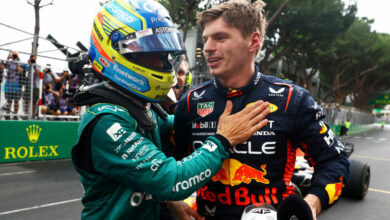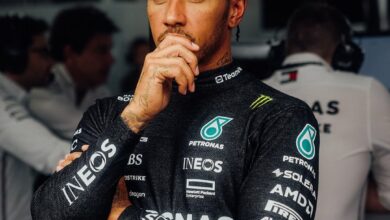Mercedes’ Toto Wolff Addresses Team’s Struggles: Dismisses Russell’s Complaints as Secondary to Car’s Pace Issues
In the aftermath of the Brazilian Grand Prix, Mercedes CEO Toto Wolff downplayed George Russell’s radio complaints, highlighting the team’s fundamental speed issues. This move signals a critical focus shift within Mercedes, as they grapple with ongoing performance challenges.
Key Takeaways:
- Toto Wolff, Mercedes team principal, played down George Russell’s team radio grievances after the Brazilian Grand Prix, emphasizing that the real problem lies in the car’s fundamental lack of pace rather than any team strategy or communication issues.
- Wolff described the incident involving Russell as a “complete sideshow,” candidly acknowledging that the car’s speed deficit overshadows other concerns. This statement reflects a significant pivot in the team’s approach to addressing their current struggles.
- The entire Mercedes team, including Lewis Hamilton, expressed dissatisfaction with the car’s performance. Wolff termed the situation “inexcusable” and stressed the urgent need for introspection and improvement as the season nears its end.

In a candid encounter with the press following the tumultuous São Paulo Grand Prix, Toto Wolff, the head of Mercedes-AMG Petronas Formula One Team, demonstrated a blend of resignation and determination. The focus quickly turned to George Russell’s frank team radio messages before his retirement from the race. Russell’s critical comments about the team’s strategy, notably questioning, “Are we working together here or are we just doing our own race?” resonated with the frustrations typical of a racing driver in the heat of the moment. However, Wolff downplayed these remarks, insisting that the team’s primary challenge was not strategy but a fundamental lack of speed.
Wolff’s dismissal of Russell’s radio comments as “a complete sideshow” reveals a more profound concern within Mercedes. The team, once dominant in Formula One, now faces an unpredictability in performance that baffles both the engineers and the drivers.
In a remarkably blunt confession, Wolff characterized the team’s performance in Brazil as “inexcusable.” He expressed his dissatisfaction in stark terms: “Inexcusable performance. There are no words. That car finished second last week and the week before, and whatever we did to it was horrible.”
Wolff continued, voicing his sympathy for the drivers and highlighting the car’s precarious balance: “Lewis survived out there, but I can only feel for the two driving such a miserable thing. It shows how difficult the car is and it’s on a knife’s edge. This car doesn’t deserve a win. But the performance today, I’m just lacking words.”
The situation at Mercedes is a clear reminder of the volatile nature of Formula One, where success and struggle often exist side by side. As the season winds down, the team faces a critical period of reflection and potential restructuring to regain their former glory.

